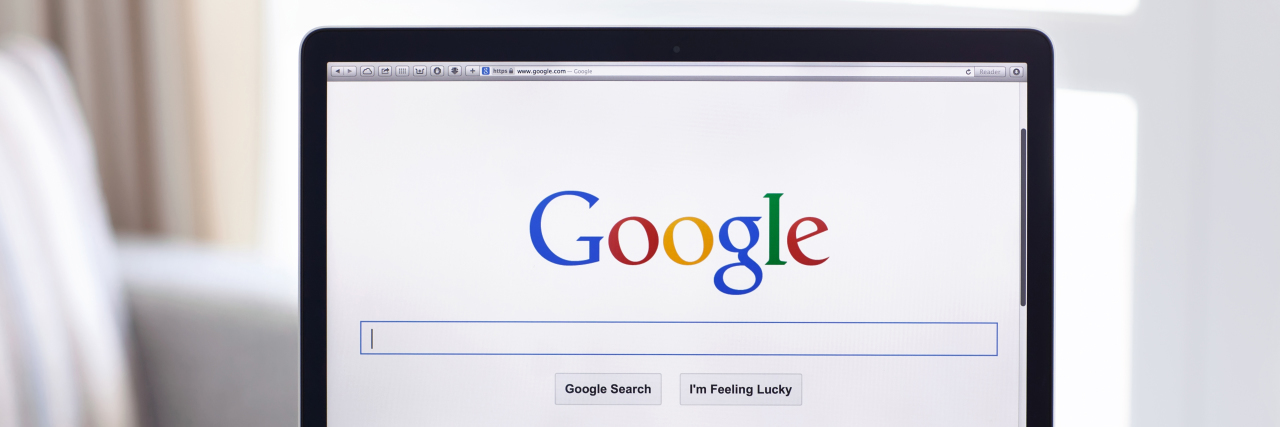Living with a rare disease is many things, but perhaps most of all, it is frightening. Rare conditions often leave us scrambling, popping up with new illness quirks we are unable to make sense of, and struggling to find a treating professional who has heard of the condition, is able to accept new patients, or is even willing to learn.
Often, this sense of being misunderstood can lead to a weight of responsibility. Without adequate resources and appropriate treatment, people with rare conditions are often left to find their own answers on the internet. Alas, Dr. Google can seem like the only doctor worth his chops.
The 21st century has brought with it marvelous inventions, incredible innovations, medical advancements, and new technologies galore, but it has also brought such quick, easy access to anything we could wish for that it may not be altogether beneficial, at least not all of the time.
With the simple click of a button, I can ask Dr. Google anything, and know I will find answers. However, subconsciously, I may be predisposing myself to a certain kind of information. Search engines are inherently biased. If I type in “does ‘such-and-such’ cause ‘such-and-such’?”, odds are I will receive a resounding yes. I am not asking objectively, and Dr. Google, brilliant as he is, is not a real person, and so he cannot decode my question to deliver objective answers.
Sometimes, especially with rare disease, self-research can be incredibly helpful. For example, I am able to make informed decisions about fertility, medication, and treatment by taking the time to access the many online resources and making myself aware of all the considerations. Just recently, I was able to bring a different form of my condition to my doctor’s attention, and soon I will undergo genetic testing to reveal my way forward. However, when all my days are spent spiraling down these dark corners of the web, trying to understand medical reports and complex terminology, I fall easily victim to the health anxiety that both my condition and instant information create.
Even healthy people often fall into the Dr. Google trap; many comedians perform skits about the sore throat, or slight bruise, and the dramatic web results a symptom search returned. The important thing to remember is that most people own a computer or an equivalent device, which means that most people, from all over the world, and from all different walks of life, are able to upload opinions and information to the internet. Before we panic, as fear mongering health sites so often pre-empt us to do, we must stop to question the credibility of what we are reading. The reality is that I could upload a detailed how-to right now on building a DIY rocket ship and flying it to the moon, but it would be very unwise to follow my inexpert advice.
Everything is a symptom. My breathing, my walking, talking and thinking are all symptoms of my being alive. My feeling is a symptom of caring, and that I sleep is a symptom of having been awake. Everything is also a possibility. Maybe I will be prime minister one day, or I will invent a
talking robot, or I will graduate from university, or I will publish a children’s book. Of course, some of these possibilities are more likely than others. Having not studied politics, my future as prime minister is doubtful, and my utter failure to build so much as a chair from Ikea renders it unlikely that I will construct a humanoid robot friend (I only hope that the latter two options are a little more realistic!), but that does not exclude them from being possibilities. It is possible that I will lose mobility as I get older (and if that day comes, I am sure I will learn how to manage the new development), but it is not inevitable. It is possible that I will require particular medications, but that does not mean that anything is set in stone.
I am one of the worst culprits for becoming caught up in my own head and falling down the rabbit hole that is the world wide web. I can spend hours panicking, reading medical reports I have not had the education to properly understand, and forums that can only inform me on others’ personal experiences that may or may not be applicable to my situation. I will not stop researching. It would be an unrealistic lie for me to tell you I was going to, and on the whole I do not believe that learning more about my own body is a bad thing to do. What I will try is taking a step back.
When reports are only scaring me, they are not helpful. I know this in my head, and I am going to attempt to make my frantically typing fingers understand it too. It is time to learn less medical terminology, and more of how to stop, take a breath, and move on from something that is not serving me. I will take any new rare disease symptoms as they come, and figure out how they will fit into my life. For now, I want my focus not to be on the symptoms of being ill, but those of being happy and alive.

